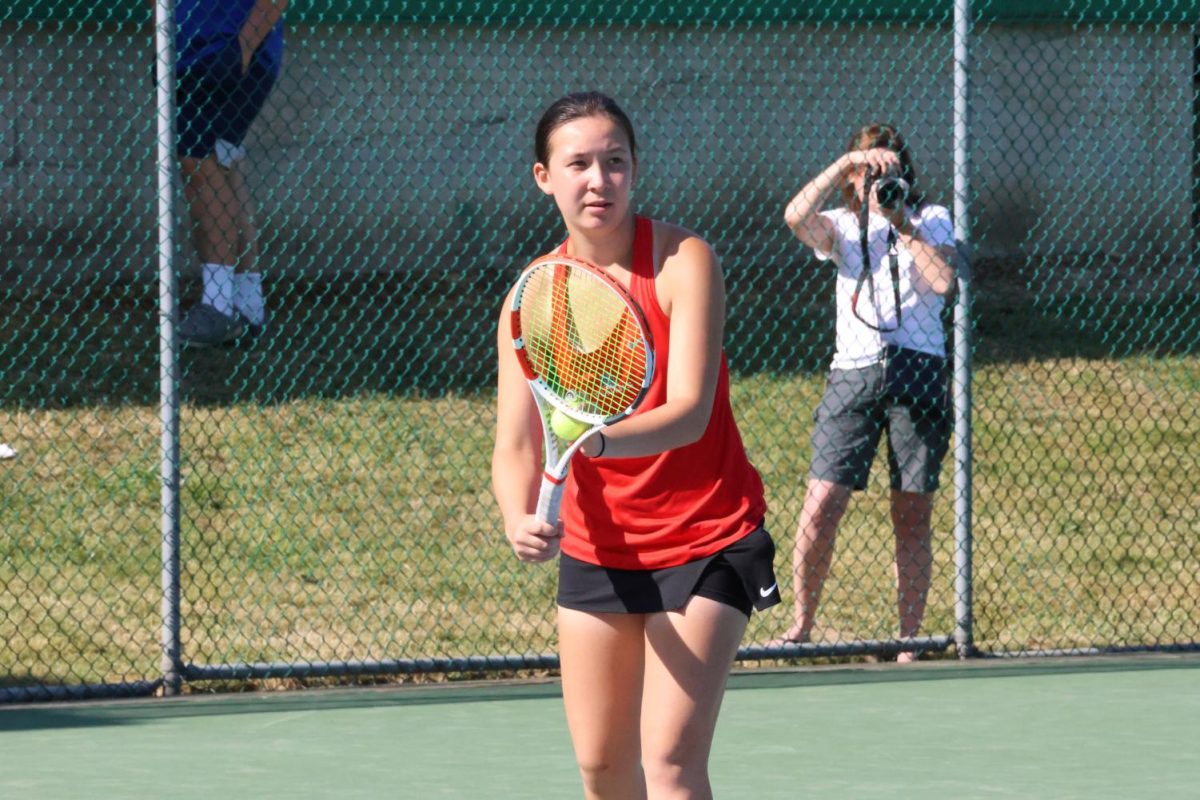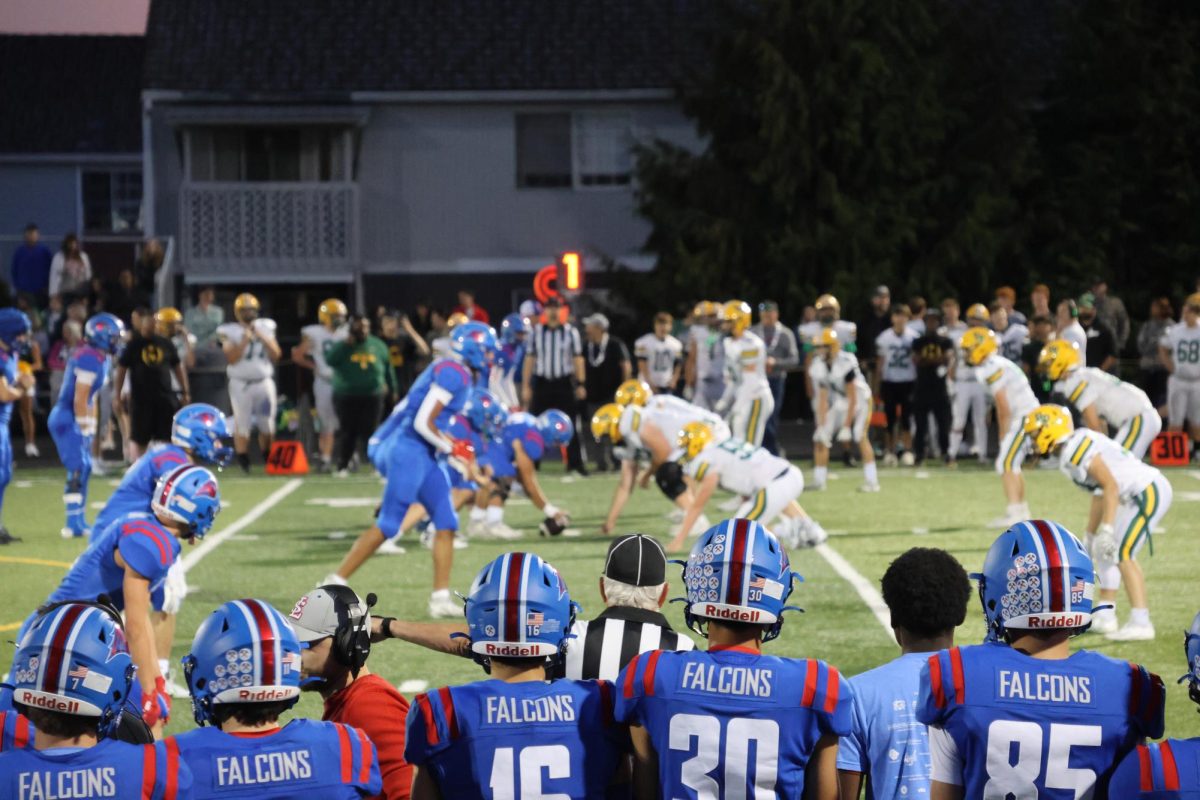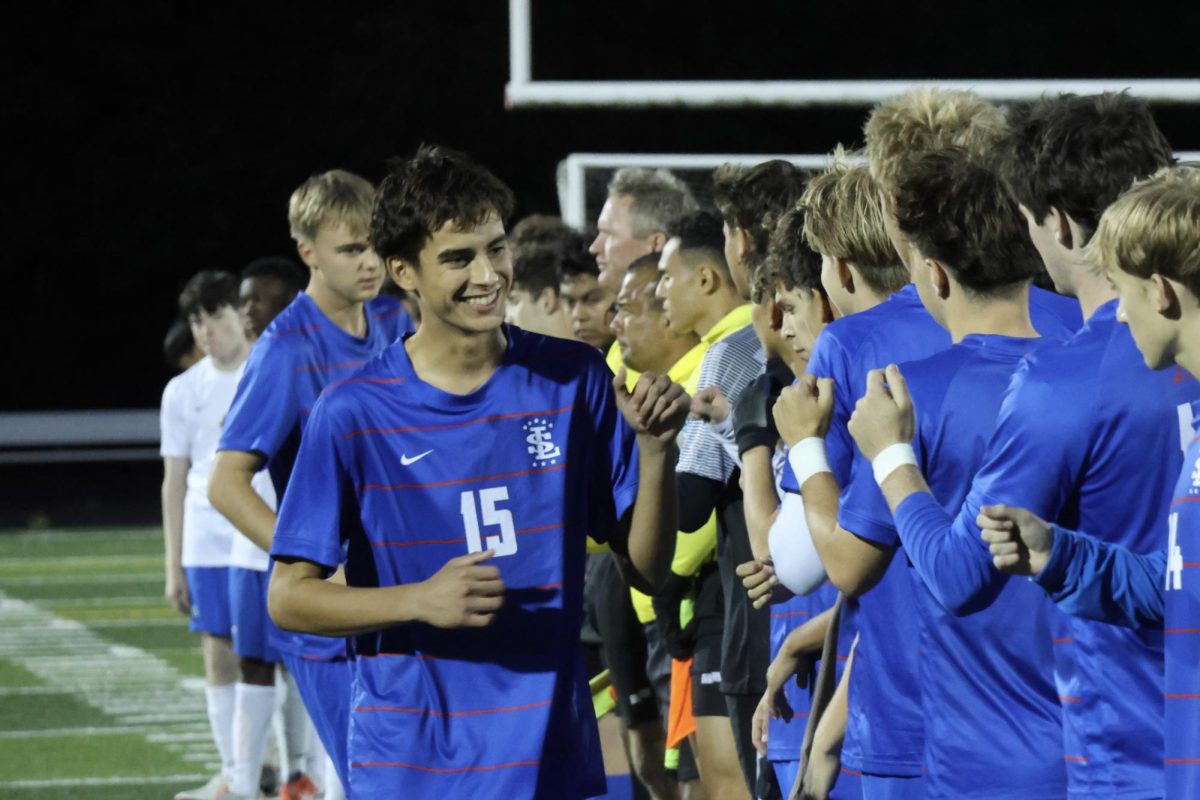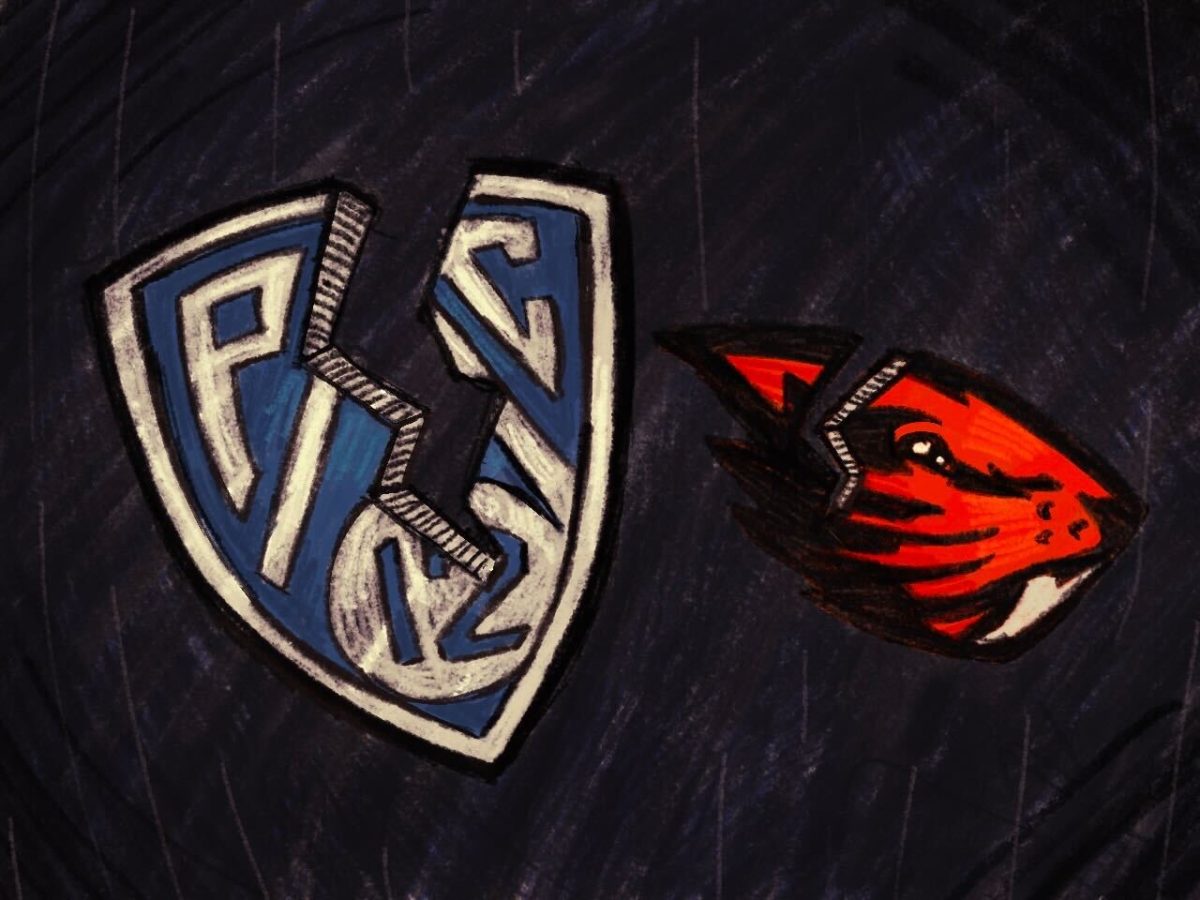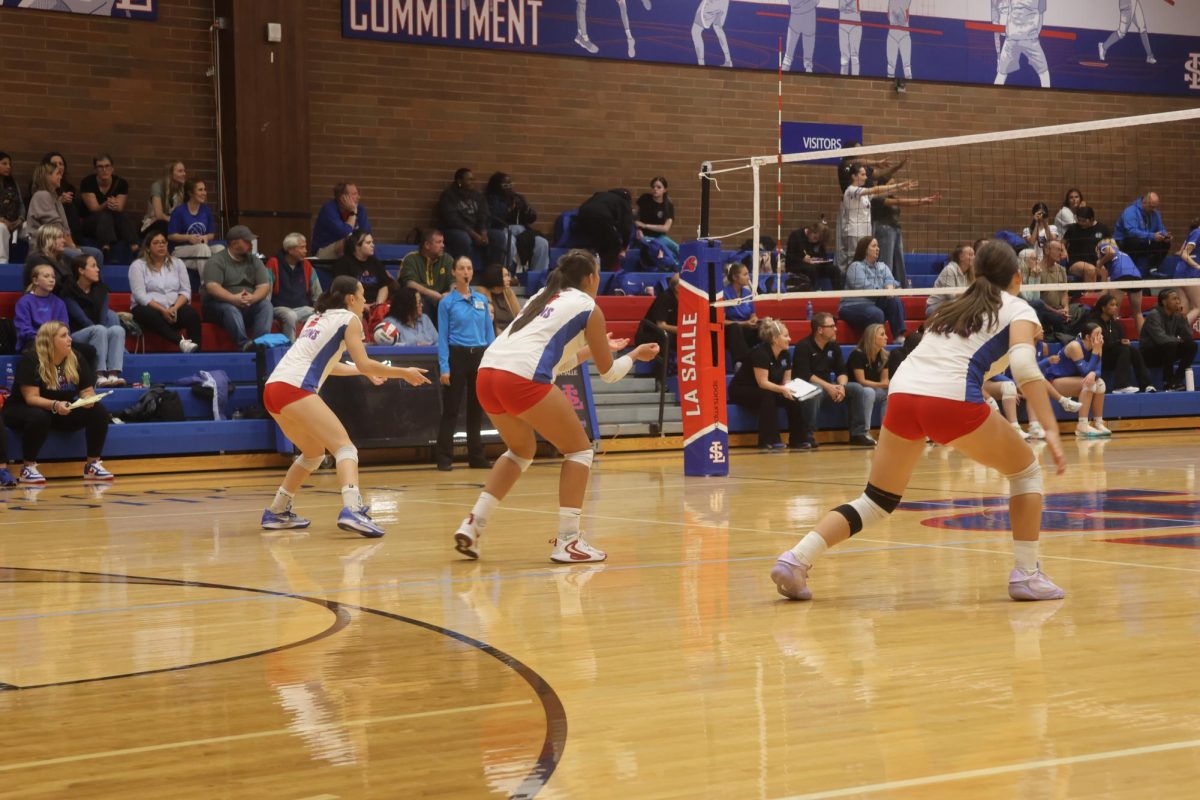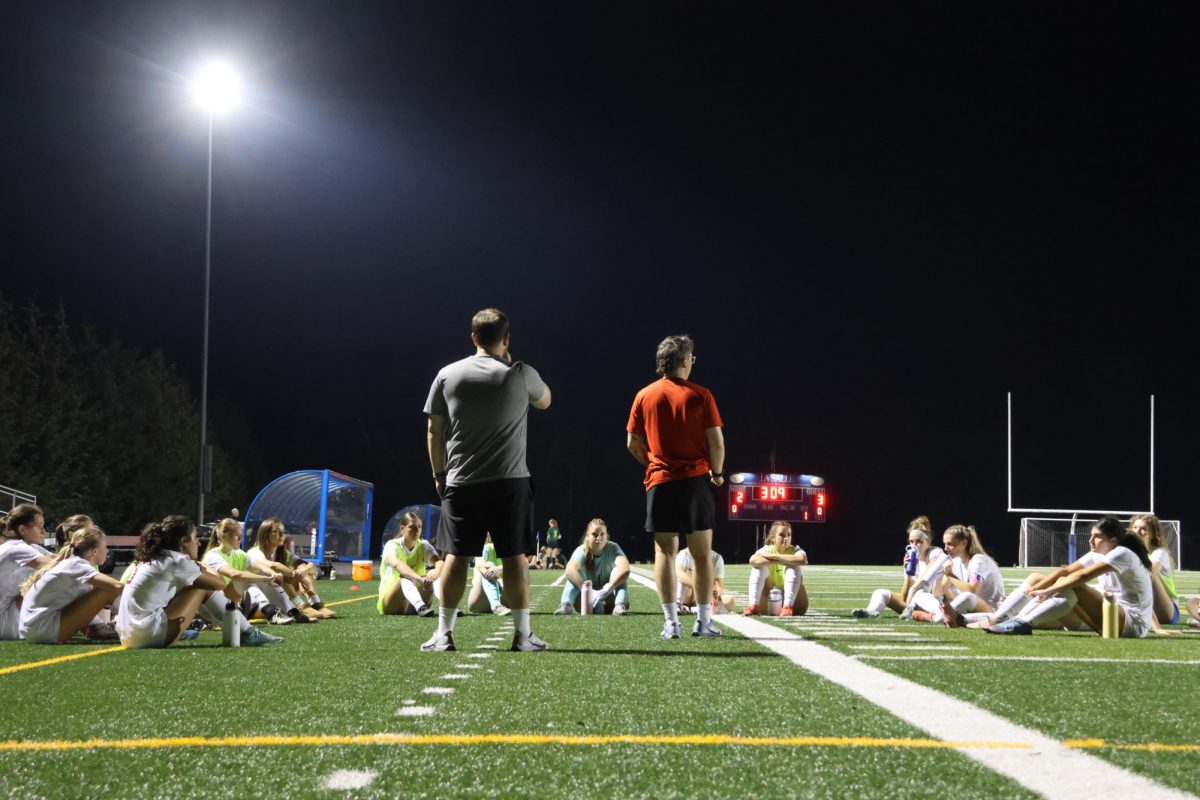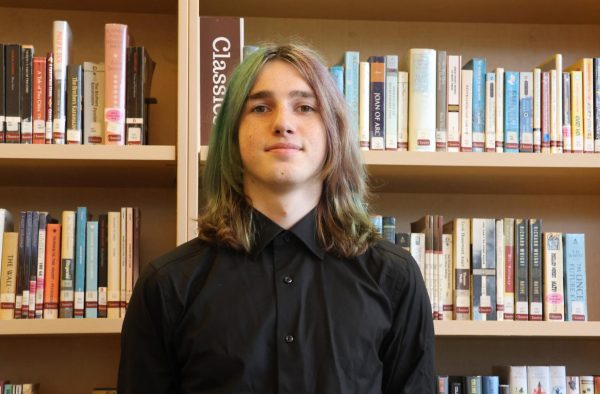About 70% of youth quit organized sports by 13; the approximately 30% that go on to play high school sports often enjoy finding a community and becoming more physically fit.
For those that go to college, only 7% play a varsity collegiate sport.
Senior Kennedy Harris will be one of them.
Harris has attended La Salle her entire high school career and has played tennis recreationally since she was five years old. She is a three-time OSAA state champion and competes in tournaments year-round. She started to play competitively at the age of 12, looking to play in college.
Getting to this point wasn’t easy for Harris — and she had her doubts — but she recently committed to play Division 1 tennis at the University of Portland, achieving her goal.
However, like many others, Harris has experienced burnout due to overtraining, having to train through injuries, meet expectations, and balance school while still trying to improve.
As a student-athlete, she often misses school to compete, causing her to have to catch up on important assignments and tests. She has to find the time to make these things up on top of her already tight schedule.
When school gets tough, it can be a burden on her at practice.
“My coach is always saying during practice — ‘you can’t change anything out of it,’” she said. “‘You can only focus on practicing in the moment,’ and that’s really hard when I didn’t do well on a test, or I have a test tomorrow, or there [are] more tournaments coming up. It gets really stressful.”
According to Harris, trying to constantly improve weighs her down. “I just keep going because I want to improve,” she said. “I kind of forget about social life and academics a little bit, because I really just want to get better so I can play in college.”
She says taking breaks is hard for her, because she sees those around her improving while she’s not. After training for months on end, “I really do need a break,” she said. “But sometimes I can’t see that because I just think, ‘I just need to keep going, because then I’ll improve,’ instead of letting my body rest a little.”
Sometimes she is forced to rest after being injured, something she tries to avoid even at the expense of her wellbeing. She once sprained her wrist and continued playing for two months before going to see someone about it, but by then it was too late — it caused permanent damage to her body.
She avoids these breaks because “I have to show that I’m really trying,” she said.
“I feel I’ve had so many injuries that when I mention them and say ‘this is hurting,’ or ‘I don’t know if I can keep going,’ I feel like it shows that I’m giving up,” she said.
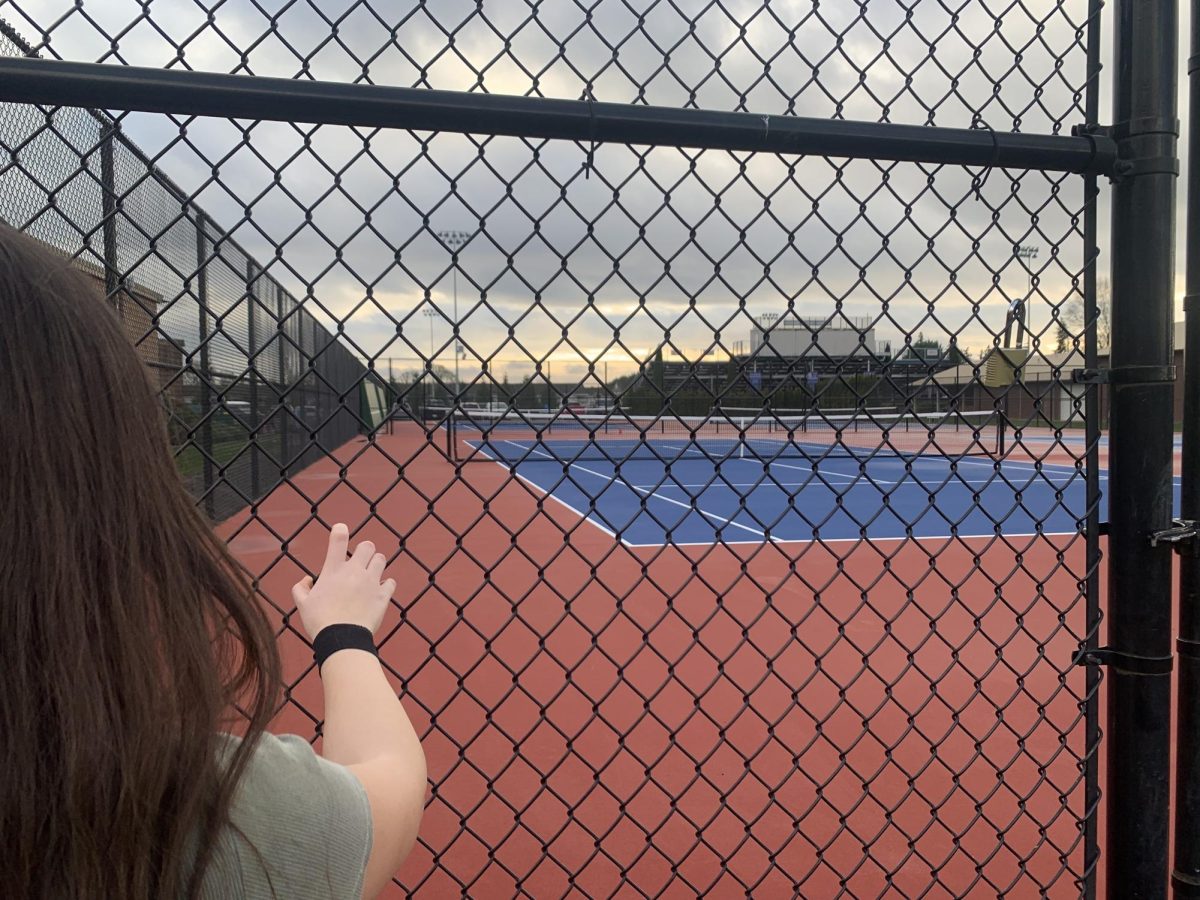
She now has to use tape to support her wrist and wear a brace to support her ankle after tearing a ligament a little over a year ago.
These breaks not only impact how well she is able to perform, but thinking about how the recovery time will affect her takes a toll on her mental health. “If I do take a break and let my body actually heal, then I’m just gonna be behind,” she said. “I just felt like I was stuck.”
The injuries she sustains leave aftershocks long after she gets them, her ankle affecting her a year after spraining it.
Constantly trying to build on her skills, she can lose sight of how constant training can affect her until it’s too late.
“I just feel in my body sometimes things just hurt and I know they shouldn’t,” she said. “I feel like everything just slowly gets more and more tired and just can’t keep going.”
Having to barter with herself over using her time to improve or rest is a big struggle for Harris — stressing herself out even more.
Harris often feels like the effort she puts in is not seen by those around her. This led her to feel like she had to prove herself at a young age, especially to her parents.
“Now, I’m just trying to have a little bit more fun,” she said. “It’s me playing on the court, it’s not my parents. It’s my job to go out there and try to do my best.”
Despite this, it’s still something she has to carry with her, as “they don’t understand how much I do try,” she said. “On the outside, for them, it seems like I don’t put in enough work.”
“They don’t know what’s going on inside my head,” she said. “I am doing the best I can.”
Fighting through burnout and injuries, Harris has achieved her goal of making it to the college level and breathes a little easier now.
She is extremely glad she didn’t give up. “I would have taught myself that it’s okay to quit when things get hard, and that’s just not going to help me later in life,” she said.
She is one example of many athletes who have experienced thoughts of quitting and doubt of whether or not her effort was worth it.
Harris is proud to have made it this far and is greatly looking forward to her last high school season. “I mean, I’m kind of sad about it too because it’s the last one,” she said, “but it just brings me a different perspective on tennis each year.”
Each school season lets Harris relax and just enjoy the moment more, getting looser and having fun.
She leaves this advice for others: “Think about what’s important to you,” she said. “Is this the thing that you want to be the most important thing in your life?” She recommends taking some time to yourself and contemplating this thought, maybe even taking a break from the activity.
“If there’s any doubt in you, you might want to stop, because it’s not worth it to continue and not know if it’s really something you want to do with your life,” she said.


